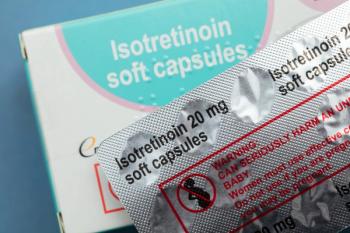
Afamitresgene Autoleucel, First Gene Therapy to Treat Adults With Metastatic Synovial Sarcoma, Receives FDA Approval
Afami-cel was approved in conjunction with MAGE-A4 IHC 1F9 pharmDx, a diagnostic tool that can identify patients eligible to receive the treatment for synovial sarcoma.
The FDA has approved afamitresgene autoleucel (afami-cel, Tecelra; Adaptimmune) as the first gene therapy to treat adults with unresectable or metastatic synovial sarcoma, according to a news release from the agency.1
Afami-cel is approved for those with synovial sarcoma who have received prior treatment with chemotherapy, are HLA antigen(s) A*02:01P, -A*02:02P, -A*02:03P, or -A*02:06P positive, and whose tumor expresses the melanoma-associated antigen A4 (MAGE-A4) antigen, determined by FDA authorized companion diagnostic devices.1
The agency also approved the MAGE-A4 immunohistochemistry (IHC) 1F9 pharmDx (SK032; Agilent Technologies) to be utilized as such a diagnostic device, aiding clinicians in identifying patients who have synovial sarcoma and who may eligible for afami-cel treatment.2
“Potentially life-threatening cancers such as synovial sarcoma continue to have a devastating impact on individuals, especially those for whom standard treatments have limited efficacy due to tumor growth and progression,” Peter Marks, director of the FDA’s Center for Biologics Evaluation and Research, said in the news release.1 “The approval of this state-of-the-art immunotherapy technology provides a critical new option for a patient population in need and demonstrates the FDA’s dedication to the advancement of beneficial cancer treatments.”1
Afami-cel is an autologous T cell immunotherapy that is composed of a patient’s own T cells. In afami-cel, the T cells are modified to express a T cell receptor that targets MAGE-A4. The drug is administered as a single intravenous dose in patients.1
In synovial sarcoma, malignant cells develop and form a tumor in soft tissues of the body. The cancer can develop in many parts of the body, with it commonly developing in the extremities of a patient. Patients impacted by synovial sarcoma are often adult males in their 30s or younger, and it impacts about 1000 people in the United States each year.1
Safety and effectiveness of afami-cel was evaluated in a multicenter, open-label clinical trial, which included patients with inoperable and metastatic synovial sarcoma who had received prior systemic therapy and whose tumor expressed the MAGE-A4 antigen.1
In total, 44 patients in the trial received afami-cel, with an overall response rate of 43.2% and the median duration of response being 6 months. Common adverse reactions associated with the treatment were nausea, vomiting, infections, fever, back pain, and others.1
“Adults with metastatic synovial sarcoma, a life-threatening form of cancer, often face limited treatment options in addition to the risk of cancer spread or recurrence,” said Nicole Verdun, director of the Office of Therapeutic Products in CBER.1
“Today’s approval represents a significant milestone in the development of an innovative, safe and effective therapy for patients with this rare but potentially fatal disease.”1
REFERENCES
1. FDA. FDA approves first gene therapy to treat adults with metastatic synovial sarcoma. News Release. Released August 2, 2024. Accessed August 2, 2024. https://www.fda.gov/news-events/press-announcements/fda-approves-first-gene-therapy-treat-adults-metastatic-synovial-sarcoma?utm_medium=email&utm_source=govdelivery
2. McGovern G. FDA approves MAGE-A4 IHC 1F9 pharmDx as diagnostic tool in patients with synovial sarcoma. Pharmacy Times. Updated August 2, 2024. Accessed August 2, 2024. https://www.pharmacytimes.com/view/fda-approves-mage-a4-ihc-1f9-pharmdx-as-diagnostic-tool-in-patients-with-synovial-sarcoma
Newsletter
Stay informed on drug updates, treatment guidelines, and pharmacy practice trends—subscribe to Pharmacy Times for weekly clinical insights.








































